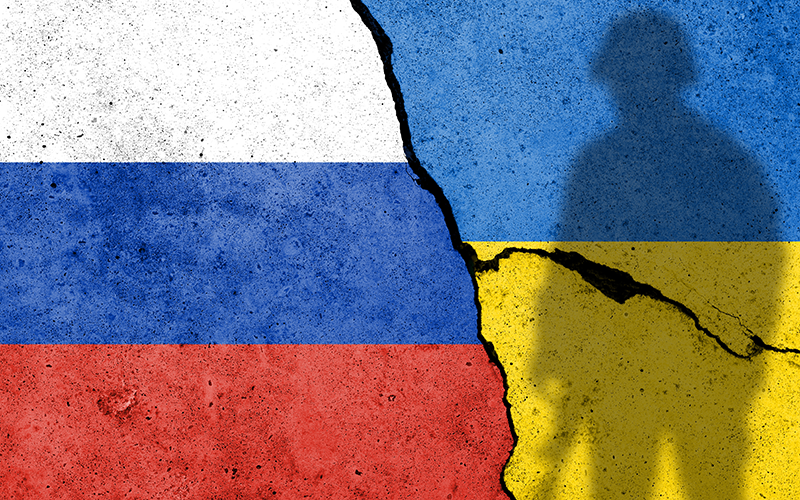Putin miscalculates opposition but don’t underestimate his resolve

Even though Russia’s President Vladimir Putin has severely miscalculated the strength of Ukrainian opposition to his military invasion, the conflict has “the potential to worsen further”.
This was the conclusion of a webinar last Friday [4 March] hosted by Dragonfly, a geopolitical and security intelligence service for the world’s leading companies and organisations. Entitled ‘Ukraine-Russia: Escalations and implications’, analysts at Dragonfly, the former Intelligence & Analysis practice of The Risk Advisory Group, said Putin’s stated objectives of regime change and demilitarisation had not changed.
However, Russian forces have until now been advancing at a far slower pace, with Ukrainian forces holding up fairly well and showing resilience in its air defences. The reason given as to why Russia hasn’t been dominating the air space, as Western analysts would have thought, was Russia’s miscalculation of Ukrainian air power, as well as its own aircraft running out of fuel due to the Kremlin’s over confidence in how long the war would last.
Dragonfly analysts told the webinar audience that there have been reports of Russian soldiers defecting and laying down their arms, with many of the lower-ranked troops admitting that they didn’t think they were actually going to enter Ukraine. Combined with the plan for a 15-day war only and the troops made up of conscripts, as well as lack of proper rations, water and fuel, this would explain the chaotic scenes in some parts of Ukraine.
Yet this will inevitably lead to a more dirty, bloody war, as the more chaotic scenes are slowly ironed out, Dragonfly predicts. Three possible scenarios are likely: ground assaults on Kyiv and Kharkiv; a ceasefire; in the coming weeks, Russia becomes bogged down and stuck in a long drawn-out operation in the country.
For business continuity purposes, Dragonfly analysts say the best case scenario is a swift conclusion – a surrender by the Ukrainian government – which would lead to a fall in security risks. However, the regime change would bring many challenges: how does Russia keep the population under control and govern with no infrastructure as a result of the military offensive?
So there is pessimism for either side climbing down.
For companies working in Russia, with Western governments implementing economic sanctions on the country, what sort of effect is this having on the Kremlin’s thinking? Dragonfly analysts again reiterated that Putin had miscalculated the speed and severity of sanctions, as well as underestimating the opposition to the war among the Russian population.
Despite imposing a ban on independent media outlets – Western and Russian – the younger generation is still more in touch with getting non-State regulated news via social media. There are also indicators that the demographic of protestors are not all 16-30-year-olds but include people in their 50s and 60s – the age group previously most likely to support their president and his policies.
However, with stricter sentences imposed on protestors, these protests “aren’t regime-changing yet”.
As for trying to second guess what Putin’s strategy or next move might be, the analysts quoted Fiona Hill, British-American foreign affairs specialist and academic: “With Putin, never say never.”
They advised to be cautious of underestimating Putin to not go further – and then he does. Don’t assume he is in an “irrational state of mind”.
• Comment below on this story. Or let us know what you think by emailing us at [email protected] or tweet us to tell us your thoughts or share this story with a friend.



